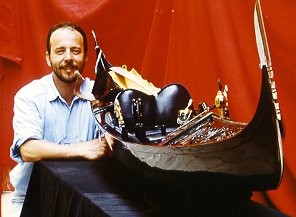Since moving to Venice, it has been a great desire of mine to visit the mysterious island of Poveglia, with its ruined mental asylum and haunted burial grounds. Finally, yesterday, thanks to two wonderful skippers Luca and Jacopo, and accompanied by fellow journalist and writer Robin Saikia I managed to visit the island.
For more images check the Poveglia gallery here or as a slideshow
Robin Saikia writes:
"Shortly before we left Poveglia, I forced myself to lie on an iron bed in the ruins of the psychiatric ward, recalling the images of the day: the desecrated chapel with the scabrous remains of its cheerful Tiepolo-blue ceiling, the claustrophobic corridors, the rusting beds and lockers, the quay, the bell-tower, the woods, the bridge. I closed my eyes tightly for a few long seconds. When I opened them, I saw a very clear picture of hell..."
The island of Poveglia, with its ruined hospital and plague burial grounds, is said to be the most haunted location in the world. Though the island is a multi-million dollar piece of real estate, it remains deserted and off limits to the public. Its dark, derelict and forbidding shores are only minutes away from the glamour of the Venice Film Festival on the Lido, but there are few visitors. Very few Venetians are prepared to talk about the island or answer questions. They believe that while the rest of Venice is governed by the Comune di Venezia, Poveglia remains firmly in the Devil’s jurisdiction. They see it as a kind of supernatural penitentiary, an outpost of purgatory and hell. This view is captured in an unnerving local saying: quando muore un cattivo, si sveglia a Poveglia; when an evil man dies, he wakes up in Poveglia. I visited the island in August this year with the photographer Marco Secchi. Our account is a drawing together of truth, half-truth, speculation and urban myth. It is based on conversations with local people and our exploration of the island. It is an attempt to make sense of the fear and revulsion that Poveglia continues to provoke, despite the best attempts of sceptics to exorcise its ghosts with the bell, book and candle of reason. (Robin Saikia)
Robin Saikia is the author of the highly acclaimed book, The Venice Lido, recently published by Blue Guides (http://thevenicelido.com). Please contact us to discuss licensing our 4000 word photo documentary of the island, words by Robin Saikia, photography by Marco Secchi. msecchi@gmail.com


 s, and - in ideal cases - the direct measurement of intact boats, are the sources which allow the author to reconstruct their forms and the construction methods used. These have given rise to a series of books, construction plans, models for museums and private collections, restorations ans reconstructions of boats.With a group of friends who share the same interest, he founded the association Arzanà in 1992 which specializes in the study and conservation of historical Venetian boats.
s, and - in ideal cases - the direct measurement of intact boats, are the sources which allow the author to reconstruct their forms and the construction methods used. These have given rise to a series of books, construction plans, models for museums and private collections, restorations ans reconstructions of boats.With a group of friends who share the same interest, he founded the association Arzanà in 1992 which specializes in the study and conservation of historical Venetian boats.


















 The mascareta is a traditional, flat-bottomed Venetian rowing boat, well suited to the conditions of the Venetian Lagoon. For centuries gondolas were the chief means of transportation and most common water craft within Venice. In modern times the iconic boats still have a role in public transport in the city, serving as traghetti (ferries) over the Grand Canal. They are also used in special regattas (rowing races) held amongst gondoliers. It is similar to punting, except it uses an oar to propel it instead of a pole.
The mascareta is a traditional, flat-bottomed Venetian rowing boat, well suited to the conditions of the Venetian Lagoon. For centuries gondolas were the chief means of transportation and most common water craft within Venice. In modern times the iconic boats still have a role in public transport in the city, serving as traghetti (ferries) over the Grand Canal. They are also used in special regattas (rowing races) held amongst gondoliers. It is similar to punting, except it uses an oar to propel it instead of a pole.
 The Island of San Clemente is an example of this concept on a single relatively small island. A monastery, an hospice, a military barracks, a mental asylum...now a 5* Luxury hotel! What next?
The Island of San Clemente is an example of this concept on a single relatively small island. A monastery, an hospice, a military barracks, a mental asylum...now a 5* Luxury hotel! What next?





